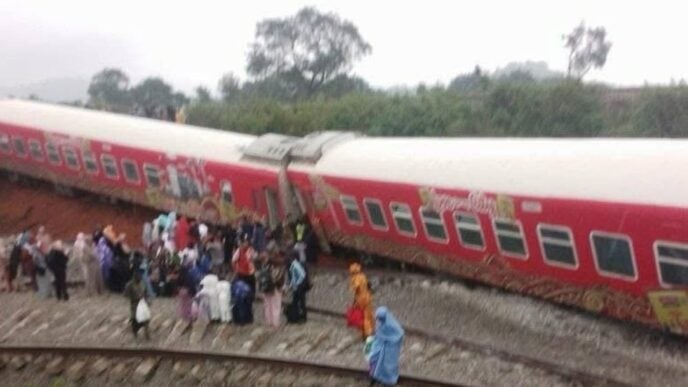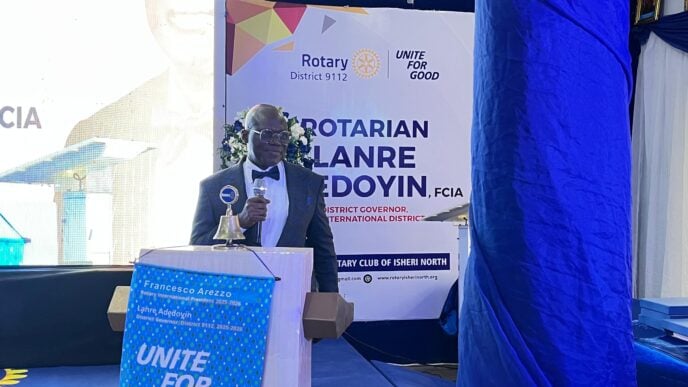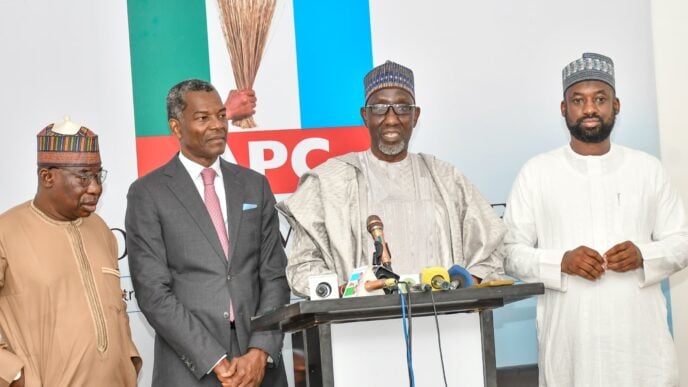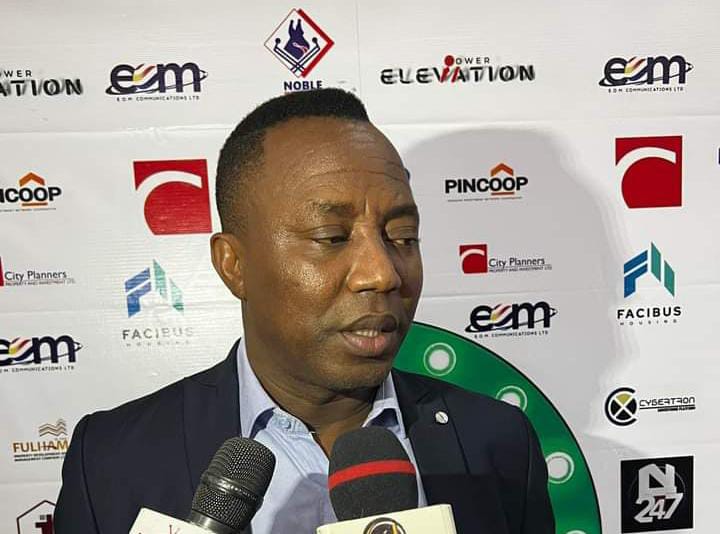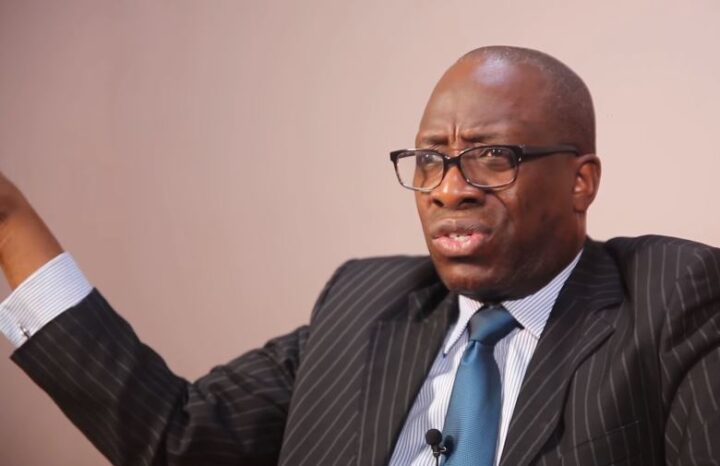Junta leaders after the Burkina Faso coup of 2022
The Centre for Democracy and Development (CDD-West Africa) says it is concerned about the resurgence and normalisation of military rule in parts of West and Central Africa.
In a statement on Tuesday, Dauda Garuba, Director of CDD-West Africa, said this trend poses a grave threat to democracy and regional stability.
Garuba referenced CDD’s newly released background paper, ‘Militarism Reloaded: The Rise of Military Populism in Francophone West Africa’, which he said outlines how recent coups, particularly in Mali, Burkina Faso, Niger, and Guinea, “are not simply reversions to old patterns but expressions of a more sophisticated and ideologically packaged authoritarianism”.
“Far from being isolated disruptions, these military interventions present themselves as national corrections, cloaked in the language of sovereignty, anti-imperial resistance, and Pan-African revivalism,” he said.
Advertisement
“This emerging military populism is anchored on growing citizens’ frustrations with democratic failure, insecurity, and the persistent inequities around the world, particularly in West and Central Africa. But its allure is deceptive.
“Coups are not answers to civilian failures. They are only accelerators of fragility.
“The time to act is now — before narratives harden, institutions crumble, and another generation of citizens grow up believing that the gun, not the vote, is the legitimate path to power in Africa.”
Advertisement
‘DIGITAL AUTHORITARIANISM ON THE RISE’ | ‘ECOWAS STRUGGLING’
CDD said these incidents reveal a dangerous pattern of militarism being reframed as “popular liberation” and gaining legitimacy through digital propaganda.
The centre noted that military regimes in the Sahel are increasingly using online platforms to mobilise support, spread disinformation, and suppress civil society voices, while portraying elections as “distractions” and “the military, once again, becomes the saviour of the state”.
“Beneath patriotic slogans and digital virality lies a strategic attempt to consolidate power, silence dissent, delay transitions, and reconfigure what legitimacy means in postcolonial Africa,” it said.
Advertisement
CDD also warned that ECOWAS, once seen as a strong defender of democratic norms, is struggling to enforce sanctions and pressure juntas to return power to civilians.
“ECOWAS, once a bulwark of democratic norms, now struggles to enforce its own red lines,” the statement further reads.
“The weakening of regional institutions, coupled with a geopolitical pivot away from traditional allies, threatens to undermine decades of democratic progress across West Africa.
CDD said it will, over the next eight months, conduct in-depth research with regional partners on how military populism spreads, particularly through digital propaganda and ideological framing.
Advertisement
The project aims to generate evidence-based insights and practical recommendations to safeguard civic space, protect elections, and reinforce democratic resilience in the region.
“This moment requires clarity, courage, and coordination,” Garuba said.
Advertisement
BACKGROUND
West Africa has witnessed five successful coups since 2020 and several failed attempts.
In Mali, the military seized power in August 2020 and staged a second takeover in May 2021.
Advertisement
In Guinea, soldiers ousted President Alpha Condé in September 2021.
Burkina Faso experienced two coups in January and September 2022, with Ibrahim Traoré eventually emerging as head of state.
Advertisement
In Niger, the presidential guard toppled Mohamed Bazoum in July 2023, pushing one of ECOWAS’ last democratic outposts in the Sahel into military rule.
In Guinea-Bissau, in February 2022, gunfire erupted around the presidential palace in what President Umaro Sissoco Embaló described as a “failed coup attempt”.
In November 2023, armed soldiers attacked a barracks in Sierra Leone and released prisoners from a central prison, but the government quelled the uprising.


